CASA Advocate Molly Ellis: Nonstop From the Friendly Skies to CASA of NH
 She came from the skies, bringing her steadfastness, intellect, and sweet disposition along with her. She knew there was a chance of storms ahead, but still she came to help children in their time of need. In the movies, this person would be holding an umbrella and a carpet bag that was inexplicably bigger on the inside. In real life, she’s even better.
She came from the skies, bringing her steadfastness, intellect, and sweet disposition along with her. She knew there was a chance of storms ahead, but still she came to help children in their time of need. In the movies, this person would be holding an umbrella and a carpet bag that was inexplicably bigger on the inside. In real life, she’s even better.
Before becoming a Court Appointed Special Advocate (CASA), Molly Ellis spent her career up in the clouds – literally – as an on-the-go flight attendant. When she first saw a newspaper article about CASA, she was a young college student, still moving around. But what she read stuck with her. Years later, when planes were grounded and travel was forced to a halt due to COVID, Molly used that time to take her preservice training and begin a new journey, volunteering her time to advocate for children.
As soon as Molly started her CASA training she knew she had made the right decision. “I really appreciate the rigor of the training,” she says. “I hope that’s something that would be encouraging to people who are considering becoming a CASA. I feel like it really gives you a solid foundation to feel a little more assured when you’re going into this. For a lot of people, we don’t have any background with what these cases involve. The training gives you the framework for working on a case, and knowing what concrete steps you could recommend to benefit the child.”
She continues, “It feels really good knowing you’re not just going to show up and read a little leaflet and be expected to jump right in. You feel really supported.”
Molly has engaged in a number of the learning opportunities available to CASAs beyond the initial training. “If you have a case with older children, there’s a separate training on working with older youth. There are continuing education courses offered to CASAs free of charge through Granite State College. Those classes are for foster parents and social workers as well, so you get to hear their perspectives too. Once you get started you see that there are all these other learning opportunities you can take advantage of. So it’s not like you need to learn everything right from the get-go.”
Of course, all the training and prep-work that CASAs do is in service of one ultimate goal: ensuring that children who have experienced abuse or neglect are seen and heard, so that they can reach the best safe, permanent, loving home for them. Of this Molly says, “It’s such a powerful way to be involved in a child’s life. These are literally almost life-and-death decisions — and maybe they are life-and-death decisions that the court is making for these children’s lives. To be able to speak to the court and advocate for the child’s best interest after you’ve done the work of getting to know that child and learning about their life is so powerful.”
Volunteers often report personal benefits they’ve experienced as a CASA. For Molly, she says, “I love that it draws on skills that I don’t use anymore. I don’t do a lot of note taking or writing in my regular life. I’ve really enjoyed that part of it. To me it’s been really great to engage that part of my mind again. That’s been fulfilling.”
This is not to say that there aren’t formidable times as well. When asked about her challenges, Molly replies, “Teenagers. Teens are tough, man! Like, I was homeschooled in high school, so I feel like teenagers are this foreign, scary thing and they’re just so intimidating. So, for other CASAs out there, please don’t feel limited by your personal skills. You just kind of have to keep plugging away and keep being there and being supportive.”
She continues, “The teenagers, they sort of have their own lives. They’re a little bit hostile at first. They see it as an intrusion in their lives — which it is, it’s a big intrusion!” An intrusion that Molly understands was necessitated through no fault of the teen. And it’s also an opportunity where a CASA’s consistent dedication to showing up for the youth can truly pay off.
Molly herself has experienced this on a couple of occasions. She says of one teen she advocated for, “I ran into him recently when I was visiting his younger brother, whose case was still open, and this 18-year-old was really proud to tell me that he’s still working, he’s still got a job at a supermarket.”
Another case with a younger child also stands out to Molly. “This case has gone on for so long that I feel like my youngest child, who was so resistant and so closed off, he’s finally gotten to a point where he is a little bit willing to open up, and I do just cherish the fact that this consistency has led to him developing some trust. That is nice to know, that a child that does not have a lot of stability in his life does feel that you are a little bit stable.”
Each day CASAs around the state demonstrate how regular people can make a positive, life-changing impact on a child’s life. Molly says, “What’s really rewarding is knowing that I’m doing my part. I feel like I’m doing something, I’m trying in my small way to be part of the solution. Most of us can’t move mountains, most of us are not Mother Teresa or something incredible like that. But this is a way that in my normal life I know that I’m trying to do something and trying to give back and make our community better.”
They say not all superheroes wear capes (or as alluded to earlier, brimmed boater hats and button-up Victorian boots). Molly Ellis and her fellow CASA volunteers are living, breathing proof of this.
If you would like to become a CASA volunteer advocate and help children, consider attending an upcoming virtual information session to learn more, or submit an application today.



